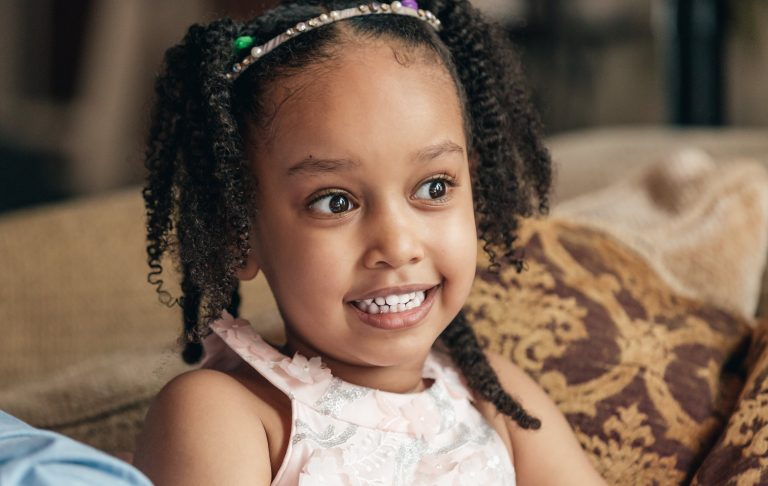
Extra gentle care for their gums and teeth
Children should visit their dentist as routinely as adults. Routine teeth cleaning and examinations are two of the most critical steps you can take to preserve their oral health and encourage healthy development. Cleaning their teeth removes plaque, tartar and bacteria that can cause decay, gum disease, chronic bad breath and which may affect how their adult teeth come in. A kid-friendly hygienist is able to get into spaces that aren’t easy for kids to reach with routine brushing and flossing at home.
After a thorough cleaning is the perfect time for the hygienist and dentist to closely examine their overall oral health, problem areas, baby teeth that may be coming in or falling out, and adult teeth that are finding their permanent home. We will let you know what to watch out for and give you some tips and tricks for oral care at home that are tailored to your child’s specific needs.
- Keep their baby teeth and new adult teeth as healthy and as strong as possible.
- Prevent gum disease and maintain their overall oral health.
- Monitor their progress and milestones through many changes.
- Establish a positive relationship with the dentist.
- Empowers kids to take care of their own oral health at home.
- Establish good habits that will last a lifetime.
Routine pediatric teeth cleanings and exams help:
What happens during children’s teeth cleaning?
Before their check-up, we will review their chart and history to quickly find any problem areas or identify troubling patterns. We may take prescribed Xrays or ask about fluoride treatment or sealants for new adult teeth. We will speak to your child in a kid-friendly manner to make them feel comfortable and ask them about how they feel about their teeth and mouth and if they have anything they’d like to ask or share.
Gum health
Often under-appreciated, gums support your child’s teeth and frame their smile. Good gum health is essential when the permanent teeth are coming in and children are just as susceptible to inflammatory gum diseases as adults. We will take special care examining the soft tissues of their mouth and give them age-appropriate advice for flossing and gum care at home.
Plaque & tartar removal
Plaque is a soft, sticky film that starts accumulating on teeth as soon as they come in. If plaque is not routinely cleaned away it can harden into tartar deposits. Plaque and tartar lead to tooth decay and can be especially hard to remove between teeth and at the gumline. A hygienist has the tools and know-how to gently scale away stuck-on plaque and tartar from those hard-to-reach places. With all that out of the way, we may recommend a fluoride treatment to strengthen their enamel.
Watching for milestones
The dentist will check out your child’s chart and any new Xrays and zero in on any problem areas, troubling patterns or new developments to monitor. Children will typically get their first set of teeth between the ages of 6 months and 6 years. They will slowly lose their baby teeth and get their permanent adult teeth all the way up into their teens (and even later for wisdom teeth!) Every child is different. The dentist will monitor their progress and will address any concerns or delays they spot.
Cost of a routine pediatric teeth cleaning and exam in Barrie
Just like with adult teeth cleanings and exams, routine checkups for kids are such a great way to prevent and avoid dental problems that most insurance companies will nearly completely cover them on a routine basis. With typical insurance, you might expect to pay as low as $0 to $50 (or more). Insurance companies typically provide coverage every 6 months except in special circumstances. If you are without dental insurance, you can expect to pay anywhere from $120 to $300 and up, especially for their first appointment or for the first appointment in a long time.
- Their current oral health.
- New Xrays that might be required.
- Fluoride treatment or sealants for new adult teeth.
- The amount of time required by the dental team to meet their specific needs.
- The equipment and supplies that will be needed to serve all their needs.
When we determine the actual cost of their treatment we refer to a few important factors:
Remember, no dentist can give you an exact quote over the phone. If you would like more personalized information or an itemized quote, we would be happy to provide you with one upon request. We can’t state enough how important it is to provide children with routine pediatric dental care. Monitoring all of the changes happening to their mouths as they grow and develop is the most effective way to prevent costly and painful complications.
Contact us today
to schedule an initial consultation & exam.
Your consultation will include an examination of everything from your teeth, gums and soft tissues to the shape and condition of your bite. Generally, we want to see how your whole mouth looks and functions. Before we plan your treatment we want to know everything about the health and aesthetic of your smile, and, most importantly, what you want to achieve so we can help you get there.
Frequently Asked Questions
- Excessive touching or cupping of their face and teeth.
- Defensive or scared to let others near their face and teeth.
- Swelling, redness or discolouration of the gums, cheeks and teeth.
- Some children run a fever if they have a toothache.
- Avoiding hot and cold foods and drinks
- Avoiding chewy or hard foods like raw veggies and chunks of meat.
- Only chewing on one side of their mouth.
- Children often become irritable and glum if they’re experiencing dental pain.
- Start cleaning your child’s teeth as soon as they come in. Use approved, child friendly and age-appropriate toothpaste and brushes.
- Teach your child about their mouths and how to take care of them. Get them in the habit of brushing their own teeth twice a day.
- Children benefit greatly from fluoride treatments. You can request fluoride treatment at the dentist and use fluorinated products and drinking water at home.
- Sugary or acidic foods and drinks like juice and pop promote tooth decay and should be enjoyed in moderation.
- Especially avoid sweet treats and snacks before bed.
- Be a good example, brush your own teeth twice a day and floss!






